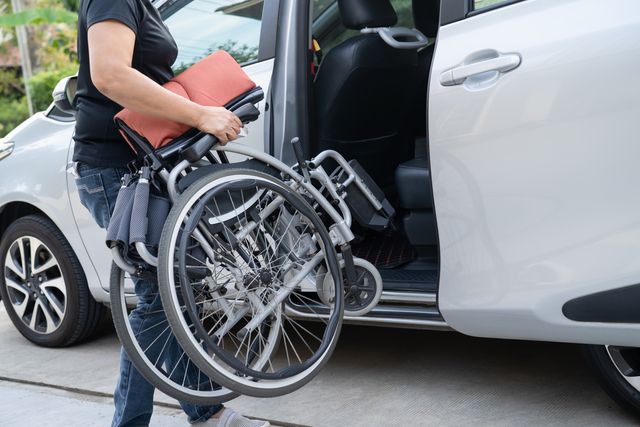
Family Leadership
The WV Family Voices supports families as partners in the health-related services to children and youth with special health child needs. Family-centered care is highly important with improving the quality of health care. It is important for providers to understand the needs of all families including the under-served areas.
Tip Sheets from Family Voices

Health Insurance
There are a variety of options when you are looking for health insurance. Some of the options are Medicaid, Health Kids, Children’s Special Health Care Services (CSHCS) to understand the needs of all families including the under-served areas.
Medicaid
This insurance is funded by Federal and State to assist children, aged, blind and/or disabled people.
Other insurance
Other insurance such as Medicaid Waivers, Supplemental Security Income (SSI), Under 21, High Deductible Health Plans are options to explore.
If you want to explore West Virginia Health Insurance, please visit:
Chip
The West Virginia Children’s Health Insurance Program will provide free health insurance for children under the age of 18 who have no other insurance. Call 1-877-982-2447 if you need to talk with someone about this program.

Transition to Adulthood
There are a variety of options when you are looking for health insurance. Some of the options are Medicaid, Health Kids, Children’s Special Health Care Services (CSHCS) to understand the needs of all families including the under-served areas.
Got Transition®
Got Transition® is the national resource center on health care transition (HCT). Its aim is to improve the transition from pediatric to adult health care through the use of evidence-driven strategies for clinicians and other health care professionals; public health programs; payers and plans; youth and young adults; and parents and caregivers.
Questions to Ask Doctor about HCT
Health Care Transition Plan of Care
Health Care Transition Timeline
Health Care Transition Readiness Assessment Tool

Advocacy
Self-advocacy/self-determination/person-centered planning

Medical Family Options
Locating a medical facility near where you live
Locating hospitals outside of WV
Locating a provider in WV
- Providers listed by county with PEIA
- Family Doctors Near Charleston
- Family Doctors Near Morgantown
- Doctors at WVUMedicine (When you are completing your search, place Morgantown in the location bar.)
- Find a doctor at St. Mary’s Medical Center
- Find a doctor at Wheeling Hospital
Early screening information for your young child

Community & State Resources
Check out available resources in the area.
Resources
- ARC West Virginia
- Assistive Technology and Durable Medical Equipment
- The Center for Excellence in Disabilities at West Virginia University
- Fair Shake Network
- Health Departments by County
- Health and the IEP
- Mountain State Parent-Child & Adolescents Network (MSP-CAN)
- West Virginia Aging and Disability Resource Centers
- West Virginia Birth to Three
- West Virginia Department of Education
- West Virginia Developmental Disabilities Council
- West Virginia Department of Health & Human Resources
- West Virginia Statewide Independent Living Council
- West Virginia WIC

Stories from Our Families
Check out available resources in the area.
Aurora

Aurora is a very happy, inquisitive child who just celebrated her 7th birthday. She is looking forward to starting her 2nd-grade year beginning this August. She and her family are happy to celebrate two and a half years of seizure free. Aurora had her first seizure when she was six years old. Sometimes, the seizure activity would be associated with a fever or illness. Other times, it would not. After years of testing and documenting seizure activity, her neurologist officially diagnosed Aurora with epilepsy after a 15-minute long seizure and began treatment.
Aurora began preschool shortly after she turned four years old. It was rather evident Aurora had speech delays and was in need of speech therapy. There was concern regarding Aurora’s fine motor skills. Aurora began to participant in occupational therapy. During the initial IEP meeting, the question came up about Aurora’s medical card which we did not have. Then, it was decided to see if Aurora would acquire the speech and motor skills with age and practice. At present, her speech delays would interfere with her social activity according to the teacher’s reports. The teacher documented that Aurora would seclude herself from group activities. She would play along side of her classmates but she would never play with them. Aurora was very socially inhibited during class play or discussion, which is believed to be correlated with her speech impairments. This was a noted battle as the speech pathologist expressed they had never been unsuccessful until my daughter in getting a child to master the C, K, and G sounds.
In first grade, Aurora was constantly getting negative remarks on her writing. On assignments, she was only getting a small portion completed and submitted compared to the other students because of her need for occupational therapy. Following a consultation with the WVPTI Trainer, I had submitted a letter to the teacher and the principal requesting a SAT meeting. During the SAT meeting, we did explore the potential for occupational therapy services. It was determined Aurora’s neurologist write a prescription for this service to get approval through the Board of Education. After a lengthy process of fighting for Aurora, we were able to get the needed services to address her speech and fine motor skills needs. Aurora continues to thrive and is doing better every day She is learning to tie her shoes and has been successful in buttoning her own garments.
I dream of Aurora with a future of continued happiness and learning. She has expressed during Summer Academy of her aspirations of being a teacher when she grows up. I hope that she continues to dream big and follow her dreams and these dreams include higher education.
My advice to other families is to never give up and to learn what your rights are as a parent, and what your child’s rights are as a student. As quoted by Julie Andrews, “Perseverance is failing 19 times and succeeding the 20th.”
WVPTI has been a wonderful resource during this process. They were able to educate me on the IEP process, as well as my rights within the process. Through a parent support group convened by our region’s trainer, I was able to gain peer support and better recognize the challenges and obstacles that still await us to allow me to prepare. The medical diagnosis and having an IEP to give Aurora what she needed has offered her a brighter future. With WV PTI’s assistance, I was able to learn key skills, including documentation which assisted me during the struggles. My family is very appreciative of all the wonderful support WVPTI has been able to offer.
Submitted by Jessica, a parent
Crystal

My name is Crystal and this is my daughter, Katelyn. She is almost four years old. We are residents of Taylor County. As she was developing, we noticed something was not quite right. When trying to get Katelyn into early preschool, she was first denied according to her evaluations. I was able to get her a second opinion. Then, she was diagnosed with ADHD and Autism. From there, we enrolled her into school with an IEP. Also, we went to see a vision specialist where she was diagnosed with Cortical Visual Impairment. After revising her IEP, I noticed her needs were not being met in school. By the end of the school year, my daughter’s IEP plan was not being followed as promised. I was discouraged and disheartened. I wondered why my daughter wasn’t getting the help that she needed. Then, a friend invited me to a WVPTI training with Mrs. Pat Elliott. I was so grateful because I learned so much and how I am the voice for my child. I asked Pat to help be my advocate and assist me. I am so grateful for her and her help in making sure the accommodations are being completed for my child to give her the best education possible! I can’t wait to see what the future holds for Katelyn!
Submitted by Crystal, a parent

Training & Fact Sheets
Fact Sheets

Provider Resources & Information
Finding a Doctor
- Braxton County Memorial Hospital Directory
- Beckley ARH Hospital
- Broaddus Hospital-Davis Health System
- CAMC Women and Children’s Hospital
- Grafton City Hospital
- Marshall Medical Center
- Mon General Medical Center
- Fairmont Regional Medical Center
- Raleigh General Hospital in Beckley, WV
- St. Joseph’s Hospital, Buckhannon, WV
- St. Mary’s Hospital
- Valley Health Hampshire Memorial Hospital
- Webster County Memorial Hospital
- Wheeling Hospital
- WVU Medicine
Health and the IEP
Find a Hospital
Medical Summary and Emergency Care Plan

Evaluation of Resources
You will find there are a variety and numerous amount of information on the web for families who have children or youth with disabilities or special health care needs. Here is a tool to help you decide if the quality of information is worthwhile and trustworthy to use:

Webinar Resources
Children and youth with mental health challenges may struggle to manage their behavior which can sometimes escalate into a crisis. By developing a proactive plan of support and action, parents, caregivers and others can help decrease challenging behavior before it reaches crisis level. This webinar will explore positive approaches to challenging behavior, and offer suggestions for developing a proactive plan of action and support.
Topics
Topics include:
Identifying behaviors and what they mean
Understanding mental health and behavior
The importance of proactive planning
How to support your child or youth
Tips to increase child and youth participation in developing action and support plans
Link: https://youtu.be/S1vjwKpMmQ4
Paper Handouts: Student Snapshot Behavior Intervention
